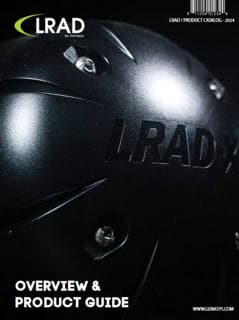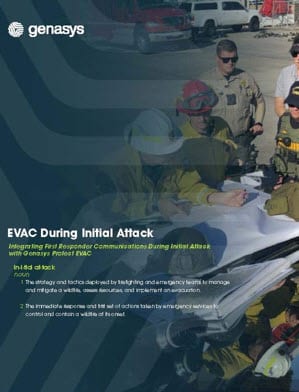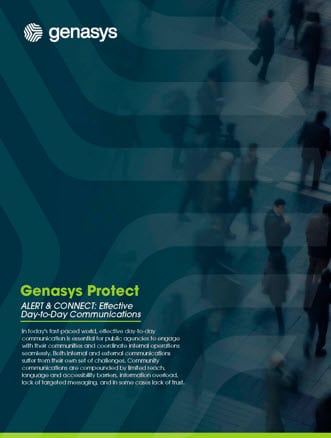LRAD Corporation
Board of Directors
Audit Committee Charter
(Approved May 14, 2008)
Organization
There shall be a committee of the Board of Directors of LRAD Corporation DBA Genasys Inc. (the “Company”) to be known as the Audit Committee (the “Committee”). The Board of Directors shall appoint the members of the Committee, which will be composed of at least three directors. The Committee shall be composed entirely of directors that are independent, as defined by the applicable rules and regulations of the Securities and Exchange Commission and Nasdaq, and are free of any relationship that, in the opinion of the Board of Directors, would interfere with their exercise of independent judgment. All Committee members must satisfy the financial literacy requirements of the applicable rules and regulations of Nasdaq, and at least one member shall have past employment experience in finance or accounting, or other comparable experience or background which results in the member’s financial sophistication. In addition, at least one member of the Committee may be designated as the “audit committee financial expert,” as defined by applicable legislation and regulation of the Securities and Exchange Commission.
Statement of Policy
The primary purposes of the Committee are to assist the Board of Directors in fulfilling its oversight responsibilities for:
- The accounting and financial reporting processes of the Company and the audits of the financial statements of the Company;
- The Company’s compliance with legal and regulatory requirements;
- The independent auditors’ qualifications and independence; and
- The performance of the Company’s independent auditors.
Except as otherwise required by applicable law, regulations or listing standards, all major decisions are considered by the Board of Directors as a whole.
Authority
The Committee has authority to conduct or authorize investigations into any matters within its scope of responsibility. It is empowered to:
- Appoint, compensate, and oversee the work of any public accounting firm employed by the Company.
- Pre-approve all auditing and non-audit services by the Company’s independent auditors.
- Retain independent counsel, accountants, or others at the expense of the Company to advise the Committee or assist in the conduct of an investigation.
- Seek any information it requires from employees—all of whom are directed to cooperate with the Committee’s requests—or external parties.
- Meet with Company officers, independent auditors, or outside counsel, as necessary.
Responsibilities
The Committee will carry out the following responsibilities:
Financial Statements
- Review significant accounting and reporting issues, including complex or unusual transactions and highly judgmental areas, recent professional and regulatory pronouncements, off-balance sheet structures, and understand their impact on the financial statements
- Review with management and the independent auditors the results of the audit, including any difficulties encountered.
- Review the annual financial statements and confirm they are complete and consistent with information known to Committee members, and reflect appropriate accounting principles.
- Review other sections of the annual report and related regulatory filings, including the disclosures made in the Management Discussion and Analysis, before release and consider the accuracy and completeness of the information.
- Understand how management develops interim financial information, and the nature and extent of independent auditor involvement.
- Review interim financial reports with management and the independent auditors before filing with regulators, including the disclosures made in the Management Discussion and Analysis, and consider whether they are complete and consistent with the information known to Committee members.
- Review disclosures made to the Committee by the Company’s CEO and CFO during their certification process for the annual report and interim reports about any significant deficiencies in the design or operation of internal controls or material weaknesses therein and any fraud involving management or other employees who have significant disagreements with management.
- Review with outside counsel any legal matter that could have a significant impact on the Company’s financial statements.
Internal Control
- Consider the effectiveness of the Company’s internal control system, including information technology security and control.
- Understand the scope of the independent auditors’ review of internal control over financial reporting, and obtain reports on significant findings and recommendations, together with management’s responses.
Independent Audit
- Review the independent auditors’ proposed audit scope and approach, including coordination of audit effort with management.
- Review the performance of the independent auditors, and exercise final approval on the appointment or discharge of the auditors.
- Review and confirm the independence of the independent auditors by obtaining statements from the auditors on relationships between the auditors and the Company, including non-audit services, and discussing the relationships with the auditors.
- On a regular basis, meet separately with the independent auditors to discuss any matters that the Committee or auditors believe should be discussed privately.
Compliance
- Review the effectiveness of the system for monitoring compliance with laws and regulations and the results of management’s investigation and follow-up (including disciplinary action) of any instances of noncompliance.
- Review the findings of any examinations by regulatory agencies, and any auditor observations.
- Obtain from the independent auditors assurance that Section 10A(b) of the Securities Exchange Act of 1934 has not been implicated.
- Review the process for communicating the code of ethics to Company personnel, and for monitoring compliance therewith.
- Establish procedures for the receipt, retention and treatment of complaints received by the Company regarding accounting, internal accounting controls or auditing matters, and the confidential, anonymous submission by employees of concerns regarding questionable accounting or auditing matters.
- Obtain regular updates from management and Company legal counsel regarding compliance matters.
Reporting Responsibilities
- Regularly report to the Board of Directors about Committee activities, issues, and related recommendations.
- Provide an open avenue of communication between the independent auditors and the Board of Directors.
- Report annually to the shareholders, describing the Committee’s composition, responsibilities and how they were discharged, including approval of non-audit services.
- Review any other reports the Company issues that relate to Committee responsibilities, including having discussion with management regarding the Company’s earnings press releases, including the use of “pro forma” or “adjusted” non-GAAP information, as well as other financial information and earnings guidance provided to analysts and rating agencies. This review may be general (i.e., the types of information to be disclosed and the type of presentations to be made), and unless otherwise provided in a Company policy, the Committee does not need to discuss each release in advance.
Other Responsibilities
- Perform other activities related to this charter as requested by the Board of Directors.
- Review all related party transactions (as that term is defined in SEC Regulation S-K, Item 404) on an ongoing basis. All such transactions must be approved by the Committee.
- Institute and oversee special investigations as needed.
- With the assistance of legal counsel, review and assess the adequacy of this charter annually, and present a report to the Board at the Board’s annual organizational meeting of the results of the Committee’s assessment, including any recommendations for changes to this charter.
- Confirm annually that all responsibilities outlined in this charter have been carried out.
- Evaluate the Committee’s and individual members’ performance on a regular basis, and annually provide to the Board for its evaluation a report concerning the performance of the Committee.
Meetings and Voting
The Committee will meet at least four times a year, with authority to convene additional meetings, as circumstances require. The affirmative vote of a majority of the members present at a meeting at which a quorum is present shall constitute action of the Committee. The Committee will invite members of management, auditors or others to attend meetings and provide pertinent information, as necessary. It will hold private meetings with auditors (see above) and executive sessions. Meeting agendas will be prepared and provided in advance to members, along with appropriate briefing materials. Minutes will be prepared.
Compensation
Members of the Committee shall receive compensation for attending Committee meetings as defined and approved by the Board of Directors.
Limitation of Committee’s Role
While the Committee has the responsibilities and powers set forth in this charter, it is not the duty of the Committee to plan or conduct audits or to determine that the Company’s financial statements and disclosures are complete and accurate and are in accordance with generally accepted accounting principles and applicable rules and regulations. These are the responsibilities of management and the independent auditors.





